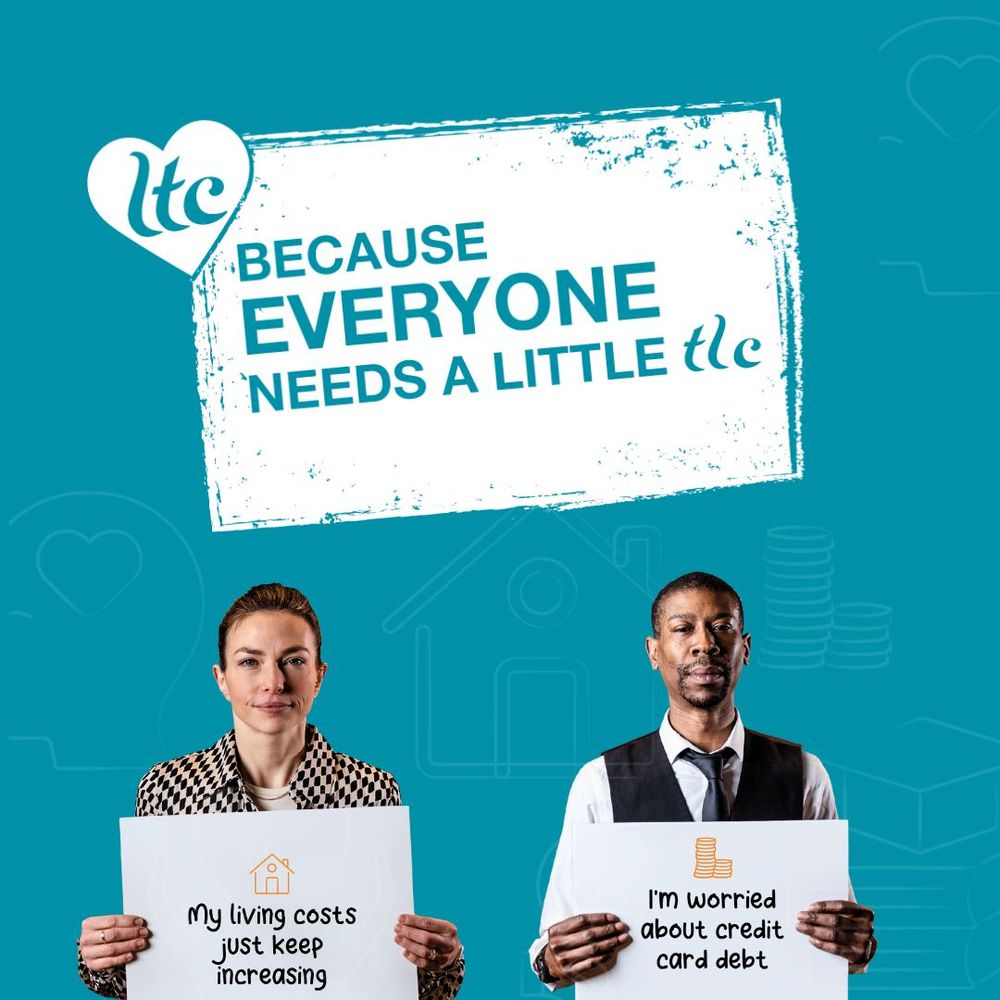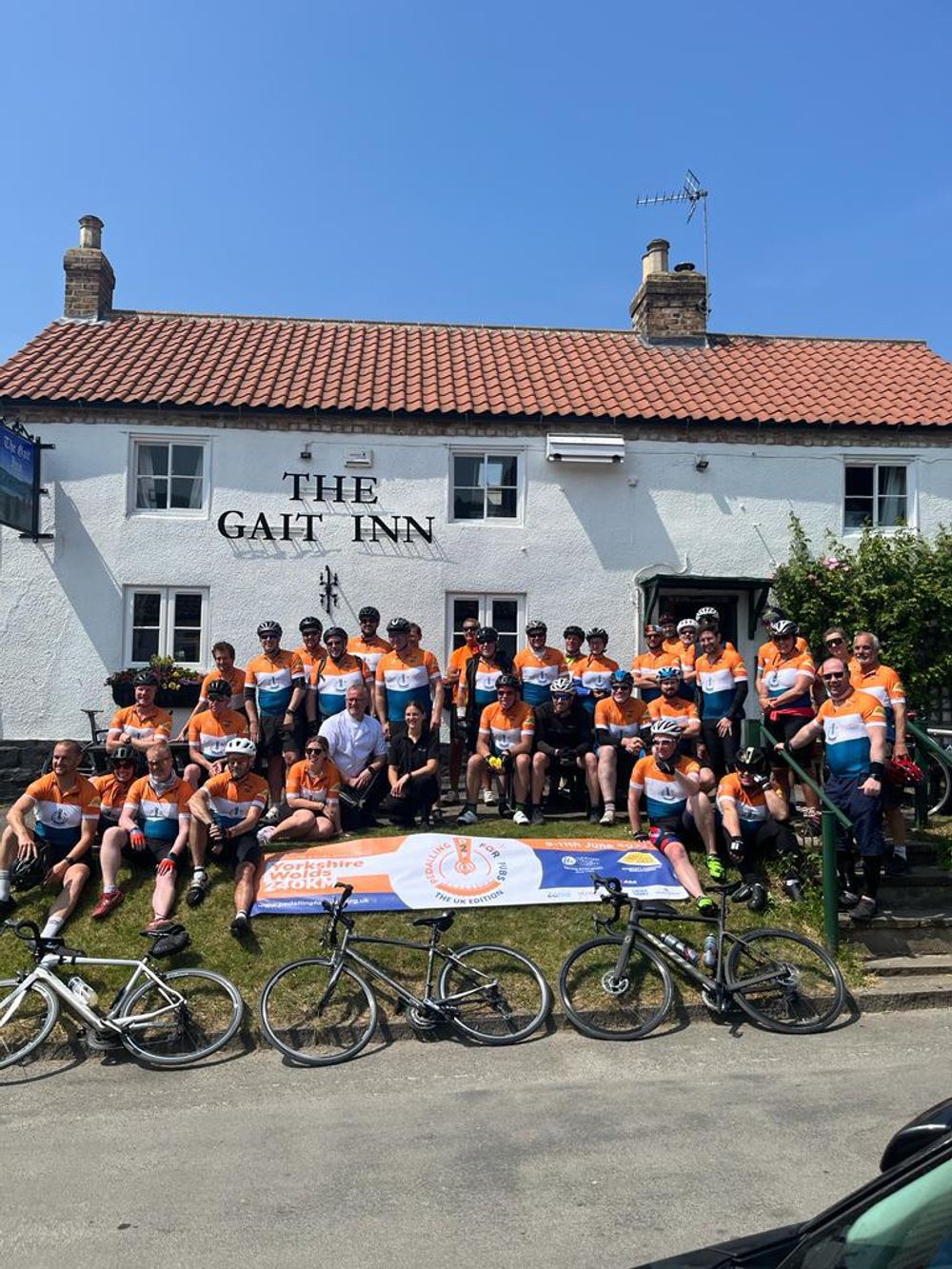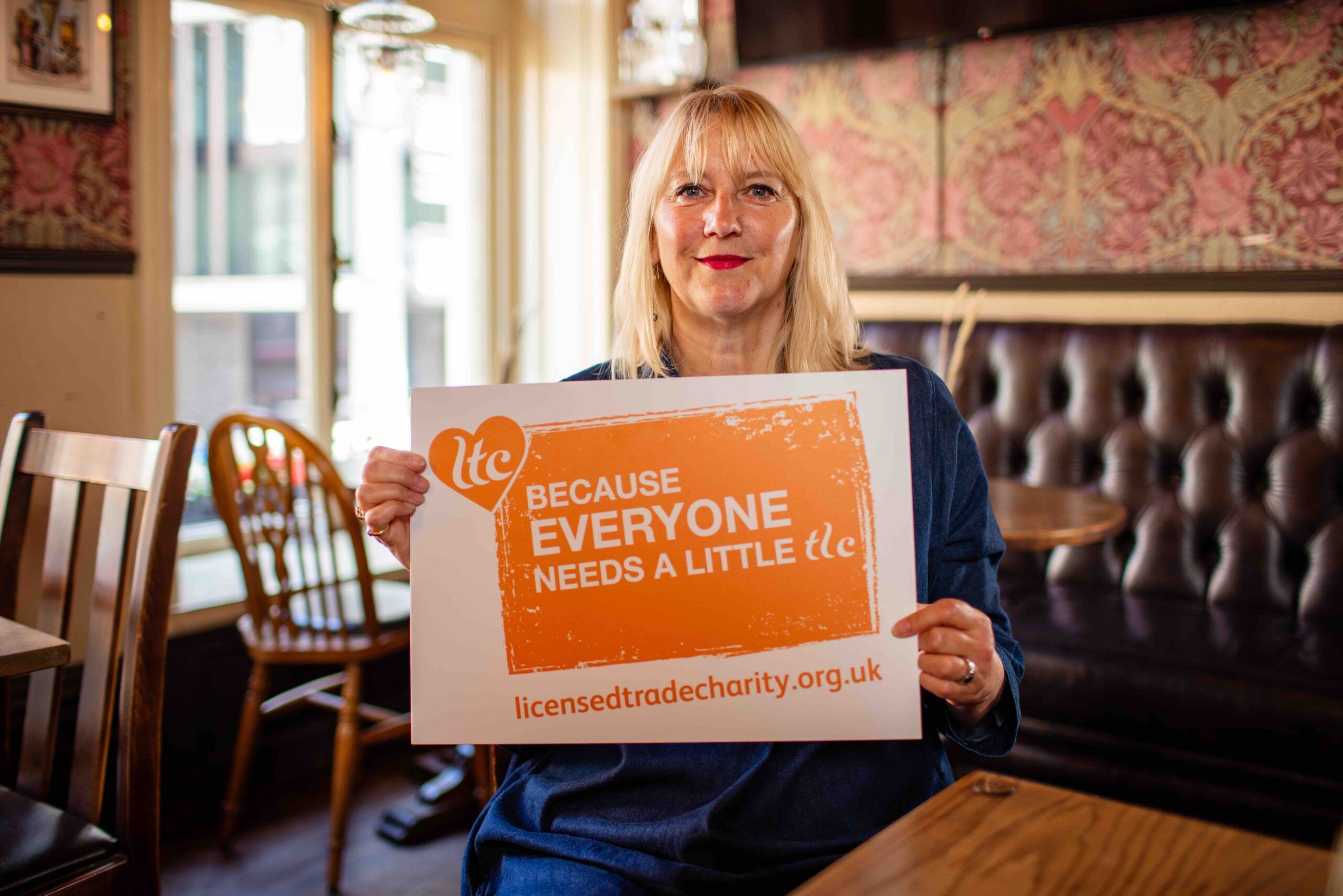The Licensed Trade Charity is there to support people from all areas of the hospitality and drinks industry. Here’s what it is there to do…

The Licensed Trade Charity can help people in many ways – as its new ‘Because Everyone Needs a Little TLC’ campaign hopes to show
Martin, his partner and his sixteen-month old child had their lives turned upside down in September last year when a fire broke out in their block of flats, rendering the family homeless overnight, and destroying all their possessions in the process.
The shoddy emergency accommodation they were provided with as a stop-gap ended up impacting adversely on their health, forcing them to move into a hotel. The couple, who both work long and unpredictable hours in the hospitality sector, didn’t have reliable, affordable childcare to fall back on or family to help, and they soon reached a crisis point.
Martin turned to the local council and his insurers for help, but support failed to come in time, which prompted Martin to call the Licensed Trade Charity (LTC) helpline in desperation. All Martin and his partner were hoping for was support covering some nursery hours for their child so they had time to fill out all the insurance paperwork and get their life back on track.
The LTC not only helped out with nursery costs, but also advised the family how to go about accessing additional government support. Although the family’s flat is still being rebuilt, Martin now feels like their lives are more under control, thanks to the wide-ranging assistance the Licensed Trade Charity was able to provide.
Martin is just one of many people in the drinks trade that the LTC, established back in 1793, supports every year. To qualify for assistance, which is means tested, applicants must have worked, or currently be working in the hospitality sector – regardless of for how long, or how long ago. But even though it is estimated that around 250,000 people in the business are in need of support at any one time, the majority of people working in the drinks trade are still unaware of the charity and the assistance it can provide.
To address this, the charity has recently launched a new awareness raising campaign, Because Everyone Needs a Little TLC, to boost awareness of what services it can offer and to encourage more industry workers to apply for help when necessary.
“With the launch of this new campaign we are determined to reach more people who work, or have worked in the sale, service, production and distribution of alcoholic drinks, and encourage greater usage of our services among those who need them,” said the LTC’s head of marketing Paula Smith at the campaign’s launch earlier this year.
“Whether you or your colleague requires emotional support, specialist guidance or a financial grant, we implore you to speak to us because we can stop an issue turning into a crisis, and help you get back to your best.”
More demand
And the campaign couldn’t come at a more opportune time, as the cost of living crisis sees consumers grappling with rampant inflation pushing mortgages and rents sky high, along with hugely increased food and energy bills. As a result, the Licensed Trade Charity has been experiencing unprecedented demand, with record numbers – 73,000 – reaching out during the Covid pandemic, up from only 8,300 in 2017.
Last year saw the number of claimants settle down at 36,000, bringing the total number of people helped since the start of 2020 up to 155,000. And last year alone, financial assistance awarded by the LTC via grants and services reached £1.17m.
“Before Covid we were dealing with around 40 applications for grants a month, and then we had a period of about six weeks when we received around 4,000 applications. We are a relatively small team, but that means we can be pretty flexible when necessary,” said Smith.
How the LTC helps

Licensed Trade Charity’s Paula Smith says she hopes the charity can be seen as a ‘one stop shop’ to help people with any issue – big or small
So how does the LTC assist those who have fallen on hard times, be that struggling with rent or mortgage arrears, debt, illness, or simply the inability to replace essential household equipment?
Smith describes the wide range of support offered by the charity as a “one stop shop”, adding: “The breadth of services we offer is enormous. What we try to do is to talk to people before they get to crisis. If we can help before they get to that place, that is so much better for all concerned. And we like to think we are not only helping the individual but also the business they work for will benefit as well.”
Support includes financial assistance to help with essential living costs, one off grants up to £5,000, school bursaries, employment advice, ensuring that applicants are in receipt of all the government benefits they are entitled to, and the provision of essential household equipment or even school uniforms for children.
“For example, if someone is ill and not able to work for six months we would look at providing them with a monthly hardship grant,” explains Smith. “Alternatively, if someone were in accommodation that is ultimately unaffordable then that is unsustainable so we would help them with housing advice from our partner, Shelter if someone has a more complex housing issue. We also partner with Relate, to help those in need of relationship advice and support.”

The well-documented labour shortages within the hospitality sector have also had an unexpected impact on the mental health of those working in the business, according to Smith.
“Because of staff shortages, inexperienced people were being promoted earlier than they might have been which not only puts pressure on that person as an individual but also on the entire team. Having an inexperienced manager in charge has an impact on everyone else too. Through our phone lines we give emotional support via BACP qualified counselors and there is also advice for managers who are able to get tips on how best to deal with difficult situations.”
The phone lines have been flooded with enquiries in the past few years, receiving 3,173 calls last year, up from 2061 in 2021 and 1037 in 2020. The majority of these– 63% – were related to mental health issues.
The LTC also co-funds with other charities to make grants that a single charity would not be able to fund. Last year also saw an increase in demand for assistance with housing – up by 40% on the previous year, which resulted in 174 grants being given to help 623 people, with £142,000 being spent on helping people in rent arrears – itself a 50% increase on 2020.
Meanwhile, a further 3,244 people were supported by mental health grants and services, and 531 provided with services to help improve their chances of future employment.
“With the cost of living crisis biting and the hospitality industry facing continued challenges, we are very aware this is a tough time for many working in the drinks trade,” says Smith. “However, if you’re struggling, there is free support available from the Licensed Trade Charity.”
Coping with Covid

The Licensed Trade Charity also runs its own fee paying school which offers bursaries to drinks industry members. Picture WWW.BRIGHTONTOGS.COM/Skye Brackpool
But how did the charity manage to pivot and cope with the huge surge in demand, not only from the point of view of administration but also in terms of funding the increase?
Smith points out that unlike many other charities, the Licensed Trade Charity is not solely dependent on fund raising for its income, but has a number of commercial enterprises which contribute to its cash reserves including three independent schools based in Hassocks, Oxford and Ascot, whose profits are ploughed back into the charity’s coffers, as well as other property and investments. The charity also has a share in the trade publication, the Morning Advertiser. This puts it in an enviable financial position, something which Smith readily acknowledges.
“The structure we have in place which ensures our longevity means we are in a lucky position where we are not completely reliant on fund raising for our income. Some charities have to fund raise for every penny but we have the means to cover our overheads via our commercial work, so all money raised go back into helping people struggling in the trade.”
Fundraising raises charity’s profile
However, even though the charity is less reliant on fundraising than others, she says that an additional benefit over and above the extra income it brings in, is the awareness raising it generates.
“As well as the money, we are able to generate greater awareness,” she confirms.
“With Pedalling for Pubs we have 26 key industry professionals who are able to spread the word, and social media gives us greater reach too. Everyone working in the hospitality sector must know at least a dozen others in the business, so word of mouth is a great way of communicating what we are all about.”

Members of the hospitality sector took part in the Licensed Trade Charity’s Pedalling for Pubs fundraising bike ride
She also appreciates the donations the charity receives from various operators and individuals, adding that in the past few years the LTC has been specifically targeting big drinks operators to enable it to reach as many individuals as possible. “We work closely with Greene King and support their support fund, but we also receive generous donations from individuals, often people we have helped in the past.”
Despite the recent increase in demand for its services, Smith claims the charity could afford to help many more people than it already does, part of the reason for launching the awareness raising campaign.
While awareness is much improved– five years ago only 3% of the hospitality trade had heard of LTC, compared to closer to a third (30%) today – Smith concedes there is still work to be done. “That means there are still around 70% of people in the industry who haven’t heard of us,” she points out, adding that she doesn’t know exactly how many people the charity could theoretically help, claiming “We certainly haven’t reached our limit yet – we could double what we are doing and we wouldn’t have to turn the phone lines off.”
Who is eligible?
While there is no such thing as a typical beneficiary, Smith says that the majority of applicants approach the charity for help with finances and mental health support.
“Everything is connected,” she says. “The conversation might start with the applicant saying their washing machine is broken, but then after a conversation we realise that this is the final straw, and that the reason they can’t afford to replace it might be because they’ve lost their job and are behind with their rent and the gas bill is outstanding. We are getting a lot of calls now from people who simply can’t make ends meet because of the high cost of living. We are also seeing a rise in calls regarding housing, as the government’s ban on evictions has now been lifted.” Unsurprisingly, this all too often has a knock-on effect on an individual’s mental health and they can easily spiral into depression when faced with overwhelming problems.
Pedalling for Pubs

The Pedalling for Pubs fundraising efforts have helped raise £674,000
While fundraising is not as central to the charity’s income as many others, nonetheless it is still constitutes an important element, raising £674,000 in the past two years via the Pedalling for Pubs campaign which is sharing the proceeds with Only a Pavement Away, another charity dedicated to supporting those who work in the licensed drinks trade.
Support for the event, which was initially planned for 2020 and postponed to 2022 due to Covid restrictions, has been “nothing short of astonishing” according to Smith. Last year cyclists completed a 335 km challenge cycle ride across Jordan, with teams across the UK collectively riding over 8,200km and together raising over £274,000 believed to be the largest sum raised for a hospitality charity in a single event.
This year, the campaign has raised even more for the two charities, with 29 riders cycling 450 km from the east to the west coast of Sri Lanka, while closer to home, around 50 riders recently cycled 240 km across the Yorkshire Wolds. These combined events raised a further £400,000 bringing the total to £674,000 over the two years.
Case Studies
Lisa
Just before Christmas Lisa received a possession order from her landlord for rent arrears which had built up over a number of years. Worried that she and her children could end up homeless just before Christmas, Lisa heard about the Licensed Trade Charity from a work colleague who had received help from the charity in the past.
A member of the LTC services team visited Lisa at her home and discussed the issues that had caused Lisa to fall behind with her rent. Along with the financial difficulties she had endured, Lisa’s sons had broken their bunk bed and needed replacing. The LTC not only helped Lisa balance the books with her rent, they also provided her children with a brand-new bed.
“I am honestly so over the moon with what they have done for me. Especially in these tough times when I felt there was no getting out the sinking sand I was in,” she said.
Chanel
Chanel has worked in hospitality for over 12 years, but in December last year she tragically lost her eyesight. Overnight her life changed, and she wasn’t able to work and financially support herself or her family. After contacting the LTC, the charity provided Chanel with a grant to buy speciality cooking equipment for people with sight loss and vouchers to help buy food and clothing. While Chanel is still adjusting to life as a sight impaired person, she knows that she can turn to the LTC for further support if necessary.
Rita
Thirty year old Rita has been employed in the hospitality sector for most of her working life, doing bar work and waitressing for a number of pubs, restaurants and hotels. “Hospitality,” she says, “has always been good to me.”
After completing a Masters in Classics in 2017, Rita returned to the hotel sector to find work and in 2019 she secured a position at Hampton by Hilton in Leeds. However, just a few months later the pandemic hit, and while she was initially furloughed, she ended up losing her job in the summer of 2020.
Despite picking up pieces of work throughout the pandemic, the longest lockdown in the winter of 2021 prevented her from working at all. She was unable to qualify for Universal Credit for three months after her last placement had finished, so she was stuck while her rent arrears continued to mount up.
On top of this, her cooker, washing machine and toaster all broke down. In desperation, Rita started googling to find out what support she might be entitled to, and she stumbled across the Licensed Trade Charity. After filling in the online application the LTC was able to provide Rita with new household appliances, plus a voucher to buy some new clothes – and the charity also helped clear some of the rent backlog. Rita is now back to studying and is due to graduate with a doctorate in 2023. She then plans to undertake a Research Fellowship at the University of York, while continuing to work part time in hospitality.
- If you would like to find out more about the work the Licensed Trade Charity does or look at what support is available then go to its website here.






























